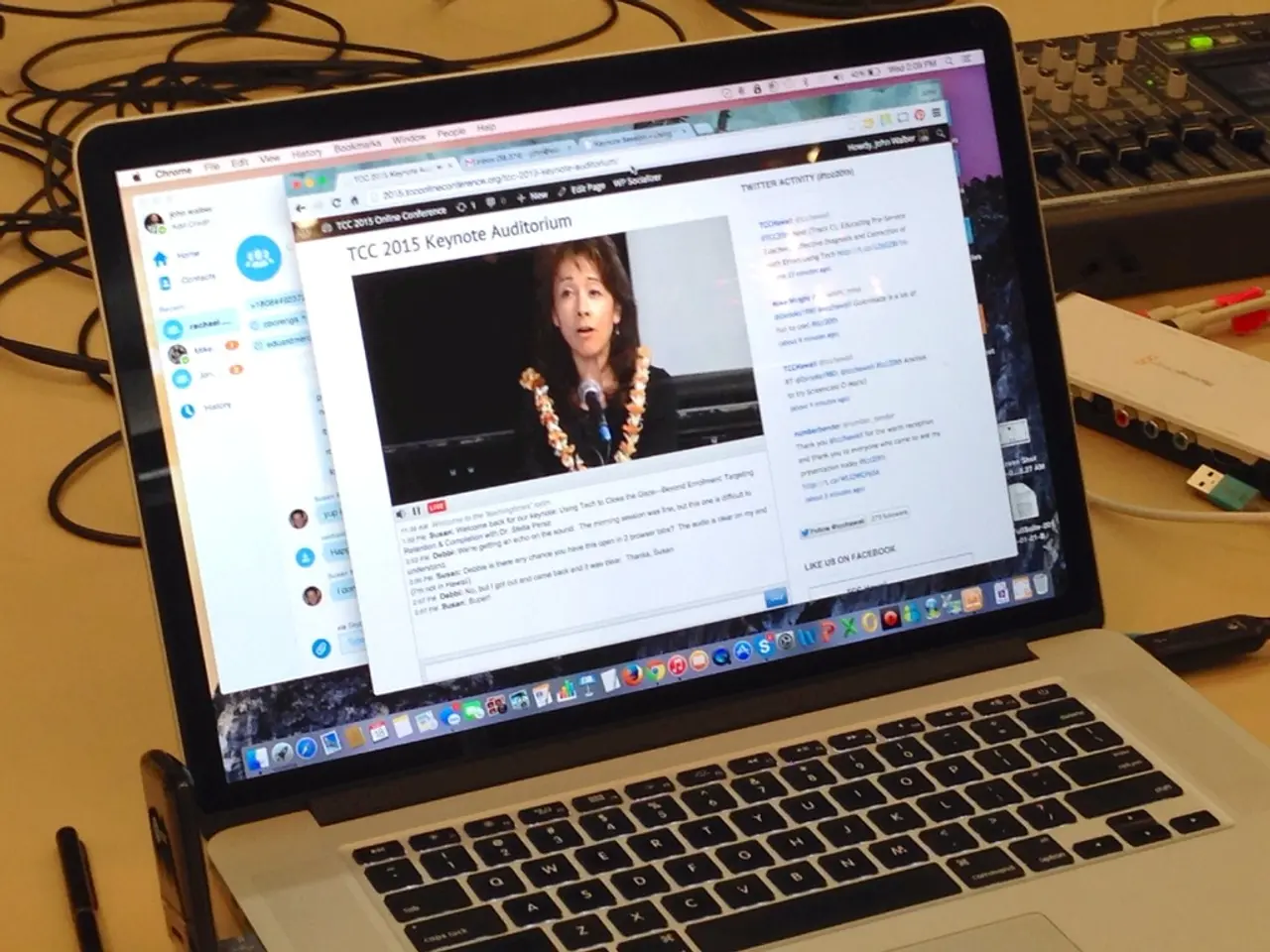Deep Focus: Why It Matters and Its Advantages
In the modern world, where distractions abound, deep work—a state of focused, uninterrupted concentration—has become a valuable skill. Coined by Cal Newport in his book, deep work is characterized by immersing oneself in a cognitively demanding task, free from distractions and disruptions. This article explores strategies for enhancing attentional control, deepening learning, and boosting productivity, with a particular focus on individuals with ADHD.
Deep work taps into the brain's full potential, allowing for deeper learning, heightened creativity, and increased productivity. However, achieving deep work requires sustained attention, mental resilience, and the ability to resist temptations for immediate gratification. The optimal duration and frequency of deep work periods vary, and experimentation is key to maintain productivity and avoid burnout.
One effective approach for improving attentional control and minimizing distractions during deep work sessions is breaking tasks into smaller, manageable steps. This helps establish clear, achievable goals that maintain motivation and reduce distraction. Another technique is the "thought dump," where distracting thoughts are quickly written down, acknowledging them without losing focus, allowing for review later.
Implementing organization systems, such as visible reminders, calendars, checklists, and alarms, also helps reduce mental clutter and decision fatigue, sustaining attentional control. Mindfulness meditation and cognitive behavioral strategies, including cognitive restructuring, can further enhance present-moment awareness and manage negative self-talk that can disrupt focus and motivation.
Body doubling, or working alongside another person (physically or virtually), increases accountability and reduces impulsivity or restlessness during tasks. Taking scheduled movement breaks, such as short walks or stretches, prevents mental fatigue and maintains alertness throughout deep work sessions.
Accountability systems and productivity tools can provide support in developing and maintaining deep work habits. The Pomodoro method, consisting of 25-minute time blocks followed by 5-minute breaks, is a popular approach for some. Time blocking involves allocating dedicated periods for deep work without any interruptions, helping to build a habit of focused work.
Structuring Deep Work Sessions involves scheduling deep work sessions in advance to prioritize and protect focused time. Incorporating breaks within the deep work structure is crucial for sustaining attention and preventing burnout. Pre-work and post-work rituals, such as setting specific intentions, reviewing goals, or engaging in mindfulness exercises, can help get the most out of deep work.
A time audit for at least 3 days can help determine peak cognitive abilities and energy levels for scheduling deep work sessions. Peak time slots for deep work should be set aside as non-negotiable appointments with oneself. Consistency in dedicating time and location for deep work can help build momentum and train the brain to enter a deep work state more readily.
For neurodivergent individuals, deep work can be a powerful tool for approaching work and achieving goals effectively. Regular use of these techniques can significantly improve sustained attention and productivity during intensive work periods.
Deep work, characterized by focused, uninterrupted concentration, harnesses the brain's full potential, enabling deeper learning, heightened creativity, and increased productivity. Improving attentional control is vital for this state, which requires sustained attention, mental resilience, and resisting distractions.
Task breakdown into smaller, manageable steps helps establish clear goals, maintaining motivation and reducing distractions. A "thought dump" allows for rapid writing down of distracting thoughts, acknowledging them without losing focus.
Organization systems like reminders, calendars, checklists, and alarms help reduce mental clutter and decision fatigue, sustaining attentional control. Mindfulness meditation and cognitive behavioral strategies enhance present-moment awareness and help manage negative self-talk.
Body doubling, or working with another person, increases accountability and reduces impulsivity or restlessness. Taking scheduled movement breaks prevents mental fatigue and maintains alertness.
Accountability systems and productivity tools can assist in developing deep work habits, such as the Pomodoro method or time blocking. Structuring deep work sessions, including scheduling them in advance and incorporating breaks, is crucial for sustaining attention and preventing burnout.
For neurodivergent individuals, deep work can be a valuable tool for effective work and goal achievement. Regular use of these techniques can significantly improve sustained attention and productivity during intensive work periods.
Self-care, including personal growth through education and self-development, supports productivity. Implementing these strategies can lead to improved focus, learning, and overall personal growth.




